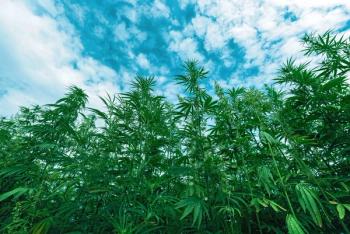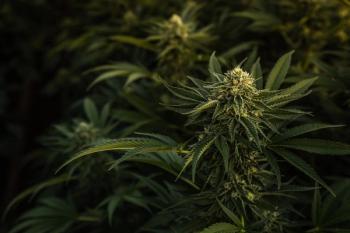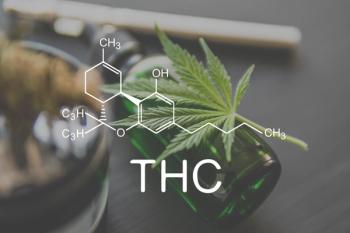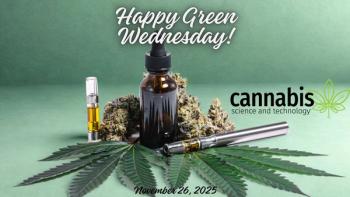
THC vs THCA: What We Know About This Cannabis Cousin Compound
Here, Scott Mazza, Founder of Vitality CBD, discusses what science and law say about the cannabinoid THCA.
One letter makes a big difference. Tetrahydrocannabinol (THC) and Tetrahydrocannabinolic acid (THCA) are cousin cannabis compounds that draw plenty of comparisons and controversy. The former gets you high – the famed psychedelic component of the cannabis experience – and the latter doesn’t. However, this all changes when heated. THCA drops the ‘A’ when smoked or vaped and transforms into THC. This distinction matters significantly under current regulation since THCA is a hemp-derived cannabinoid, making it federally legal with an entire market emerging as a result.
Heading into 2025, expect this compound to remain in the headlines and under political scrutiny. While the debate continues, early research paints a positive picture since THCA exhibits anti-inflammatory, anti-nausea, and anti-seizure effects. Yet alongside these promising findings, today’s regulatory vacuum attracts questionable operators who grow and sell without standardized oversight.
To navigate this emerging market responsibly, it’s important to grasp both the verified science and the remaining unknowns. Understanding these factors is crucial for consumers and policymakers to decide the future of this extra-lettered cannabinoid.
What You Need to Know About THCA
You’ve likely seen advertisements or discussions and wondered –
Tetrahydrocannabinolic acid is the acidic parent compound of THC. The presence of a single molecular group changes how it interacts with the body, meaning ingestion alone doesn’t cause a psychoactive response. This all changes, however, once heat enters the equation. Via smoking, vaping, or cooking – processes that begin decarboxylation – THCA transforms into the familiar THC molecule, dropping that extra group and becoming psychoactive.
This remains legal under current federal law because THCA falls into the hemp-derived cannabinoid category. As long as the product contains less than 0.3% delta-9 THC, as established by Farm Bill 2018, THCA is federally legal in its natural state – in stark contrast to its heated counterpart. It’s this unlikely regulatory status that’s led to a booming market, particularly in areas where traditional cannabis is restricted.
We’re now in an admittedly unusual situation where consumers can legally purchase THCA products and, through simple heating, achieve effects similar to traditional cannabis. While this might seem like a mere legal loophole for recreational consumers, THCA in its unheated form may also offer distinct therapeutic benefits without psychoactive effects – a characteristic that interests researchers and medical professionals.
What the Science Says
Much like other cannabinoids cannabidiol (
These are early days of research, and we should look forward to more funding and scrutiny in this direction. Most studies until now involve animals and therefore human trials are the crucial next step in confirming potential outcomes. Nonetheless, these studies are a strong sign that THCA offers more than simple recreation and could hold the key to important treatments going forward.
What the Law Says
At the same time, we’ll have to see what happens regarding the compound’s legal status heading into the new year. For starters, Farm Bill 2018 is in limbo. The omnibus agricultural policy is typically updated every five years but hit a stalemate in 2023. At the same time, we’ll have to see what happens regarding the compound’s legal status heading into the new year. Despite receiving a one-year extension, this expired again in September with no formal policy update or extension enacted. Nonetheless, we are seeing some movement in this lame-duck period and it's pointing to a potentially harder stance on intoxicating cannabinoids in the new year.
Meanwhile, in an ongoing federal vacuum, some states are moving to fill the void. THCA is in the crosshairs of specific jurisdictions much like
Likewise, it’s up to consumers to do due diligence about who’s making the product. There are poor producers in this space who don’t test for purity and potency, which not only results in worse products but potentially dangerous outcomes. It’s therefore essential to look for third-party lab-tested certification to ensure quality and accurate labeling. This ensures the THCA is free from harmful contaminants and that the cannabinoid content matches what’s advertised.
The THCA story ultimately comes down to that single letter ‘A’. In its natural form, the compound offers promising therapeutic potential without psychoactive effects, remaining federally legal while research continues. Remove that letter through heat, however, and you have traditional THC – highlighting why this topic generates both excitement and controversy in equal measure. Watch this space.
About the Author
Scott Mazza is the co-founder and COO of
Newsletter
Unlock the latest breakthroughs in cannabis science—subscribe now to get expert insights, research, and industry updates delivered to your inbox.




